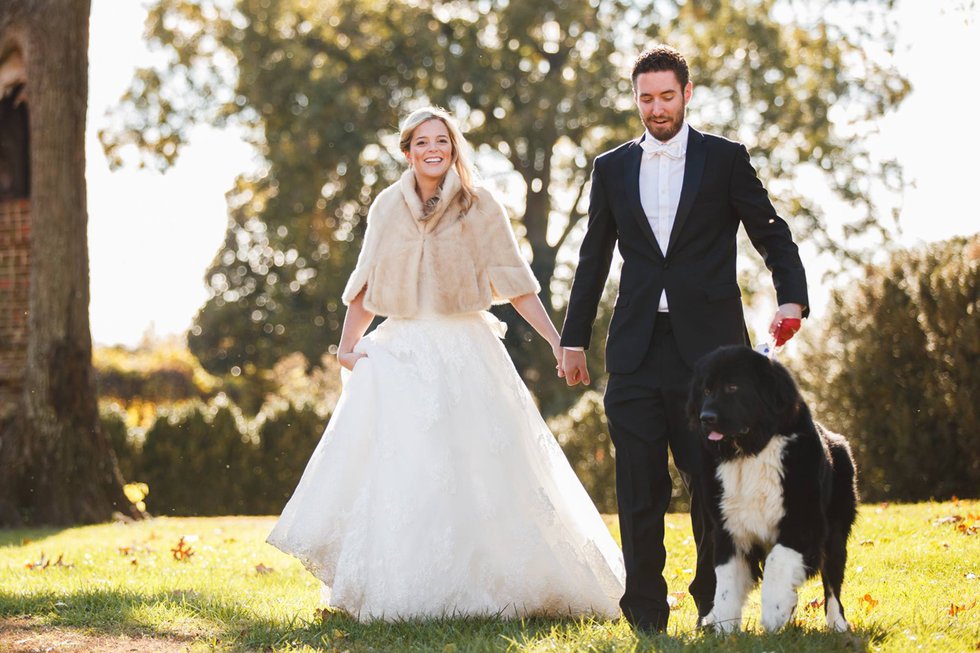Life lessons sometimes appear in the least likely places.

Illustration by Craig Phillips
My bed felt too good to leave that early summer morning years ago. I yawned, fluffed my pillow a little, and rolled over. The house seemed quiet. Hopefully no one was around to tell me to get up.
“Get up!” my sister yelled from the hallway.
“For what?” I yelled back in a tone indicating I had no intention of leaving the bed.
“We told Nannie we’d pull weeds.” My sister now loomed over my bed, hand on her hip.
My grandmother’s farmhouse on the outskirts of Richmond was surrounded by huge curved flowerbeds, with several more dotting the ample yard. In addition to tending to the yearly cycles that played out in her massive vegetable garden, there were also routine chores in her yard that required a good deal of work. One tedious task was pulling the first flush of summer weeds from her rose bed. The entire bed was periodically smothered in wild violets and other low-growing things we had to pull, which we at home simply referred to disgustedly as “chickweed.”
My sister and I pulled for hours. Starting at one end of the long bed, by the handfuls we ripped out wheelbarrow after wheelbarrow load until we had nearly reached the opposite end. Tired of persistent gnats and wiping gritty sweat from my face, I could think only of getting on my bicycle to meet friends down at Falling Creek for some cool relief. Just one more hefty patch of chickweed and we would be finished.
As I stood to stretch, I noticed a thick stand of violets under a nearby crepe myrtle. In years past we had never been able to get rid of that particular bunch of violets, try as we might, and we knew we would be back at it again this year.
“We’ll pull those violets when we finish this,” I said with resignation, pointing to the chickweed at my feet.
“You can leave the violets be,” Nannie responded as she walked towards them. She tossed a small handful of fertilizer into the center of the mass from the bucket she carried.
“Did you just fertilize those weeds?” I asked, puzzled. She had always wished the violets gone.
“It’s only a weed if you don’t want it,” Nannie said, tossing a second small handful of fertilizer.
Still puzzled, we agreed to leave the violets alone. Stretching again, I sat on the ground to rest and noticed several strands of chickweed lodged in my shoelaces. I plucked out one stem and absent-mindedly studied the small piece of nuisance.
Although I had pulled up pounds of that plant over the years I had never bothered to look at it closely. “Hey!” I yelled to Nannie. “The stems on these things are square, not round! And look! The flowers are like tiny orchids!” In my mind, I had discovered something remarkable.
What I had “discovered,” I learned years later, was that this was not chickweed. It was actually purple
dead-nettle, a non-native intrusive plant with purplish-green leaves and tiny purple flowers. The plant is found, well, all over the place. That was unknown to me at the time.
“Can we keep these?” I asked excitedly, pointing to the last bit we had yet to pull from the rose bed. I was certain I was preserving something special. “These might be the last of their kind!”
“Yeah, except for those.” my sister said sarcastically, pointing towards the barn where at least two acres of pasture appeared dusty purple in the sun from the masses of dead-nettle growing there.
Nannie stared down at the remaining patch of green in her rose bed. “You want to leave these weeds?” she asked.
“But it’s only a weed if you don’t want it,” I grinned. The very same problem I had cursed every year was suddenly something unique and worthwhile to me.
Nannie smiled and said nothing. She walked back to the crepe myrtle where she tossed another small handful of fertilizer onto the violets growing beneath.
Nannie had shifted her view of those violets. Practiced at picking her battles rather than fighting them, she embraced them and by doing so turned a headache into a showpiece. It was all about perspective. Satisfaction can come by a simple change in attitude. Nannie learned that lesson long ago. And now she taught it with the help of a few insignificant weeds.
I had quickly understood Nannie’s change of heart regarding the violets, and I marveled at how smoothly she turned a problem into a bonus. But I wasn’t sure she agreed when I applied that notion to the scraggly green blob remaining in her rose bed. Nannie walked towards the house, passing my sister and me still sitting on the ground.
She was just a few steps past us when she stopped, turned around, grinned and tossed a small handful of fertilizer onto my chickweed.
This article originally appeared in our June 2016 issue.








